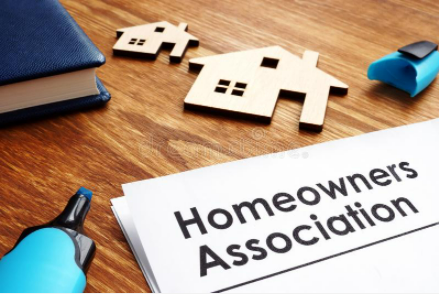
Homeowners associations are non-profit organizations formed to manage, administer, and maintain a neighborhood, building, or other group of households. As a result, membership dues are used to maintain shared spaces and carry out other HOA duties such as rule enforcement, meeting management, and budgeting.
The HOA is governed by a volunteer board of directors who are elected by all of the community’s residents. In other words, the HOA board works with community partners such as a Community Association Manager (CAM) to ensure that the association’s responsibilities are met in accordance with the rules, regulations, and governing documents, as well as all applicable local, state, and federal laws.
HOAs Have A Long History In The United States
HOAs were founded in the United States in the mid-nineteenth century as a way for land developers to market and sell their properties. They were almost unknown until the 1960s, when the enormous expansion of suburban projects caused a rapid proliferation of HOAs across the country. Over 69 million Americans now belong to a homeowners’ organization, and the number is steadily increasing.
Three Things All Homeowners Associations Have In Common
Depending on the community, a HOA may have a slightly distinct design and feel. There are three things that all associations share in common. The following are some of the similarities:
MEMBERSHIP IS REQUIRED IN ORDER TO PARTICIPATE
There are many various kinds of organizations all around the world, and most of them are completely volunteer. A HOA’s distinguishing trait is the mandatory and automatic membership of all homeowners. Above all, this clause is essential for a HOA to function and distribute costs fairly among its members.
DOCUMENT BINDING
Every HOA has a collection of governing documents, which include legally enforceable documents. As a result, these agreements provide an association the authorization to function and make members responsible for paying any membership fees, fines, or levies.
ASSESSMENTS BASED ON LIEN
HOAs use lien-based assessments to enforce their rules and governing agreements among property owners. As a result, the lien allows the HOA to seize a home if fees aren’t paid or other rules and regulations are consistently broken.
Goals of Homeowners Associations
HOAs function similarly to a local government, a small business, and a community group all bundled into one. For instance, their key goals include, but are not limited to, the following:
- Taking care of the association’s affairs.
- Taking care of the community’s common property.
- Increasing the growth of residential real estate.
- Establishment of a property rights system
- Creating and enforcing regulations and rules.
- There are three types of associations.
HOA is frequently used as a catch-all phrase to designate a variety of community associations. However, different communities necessitate differently structured groups, such as planned communities, condominiums, and cooperatives. As a result, each of these association kinds has more to do with how the ownership is arranged than with their architecture. In other words, each of these three basic association types has its own set of distinguishing traits, which are listed below.
ESTABLISHED COMMUNITIES
Individuals own their unit and the land it stands on in a planned community. Pools, parks, and roads are all owned by the association. Owner association, townhouse association, property owner’s association (POA), and planned unit development are all terms used to describe planned communities (PUD).
CONDOMINIUMS
Individual condominium owners own their apartment as well as a portion of the common areas such as lobbies, pools, and gyms. The association does not own any of the property in the neighborhood.
PARTNERSHIPS
All members of a cooperative or co-op share ownership of both the units and shared spaces. Owners join the cooperative by acquiring a stock or membership certificate rather than a home or unit. The holder of this stock or membership then has the right to a lease or occupancy for a specific unit.
HOAS CAN ASSIST YOU IN PROTECTING THE VALUE OF YOUR PROPERTY
The people who live in your neighborhood have an impact on the value of your home. When every homeowner contributes to the upkeep of their homes and yards, everyone’s property values are protected. HOAs enforce consistency within their jurisdiction, preventing one or two renegade property owners from bringing the entire neighborhood’s value down.
YOU WILL HAVE ACCESS TO BETTER AMENITIES WITH HOAS
The majority of your HOA assessments or dues go toward the construction and maintenance of community amenities, which are subsequently split evenly among the association members. These extras can include things like:
- Clubhouses
- Gyms
- Pools
- Parks
- Barbecue Pits
- Trails for Walking
HOAS ESTABLISHES RULES AND REGULATIONS TO PROMOTE GOOD COMMUNITY CITIZENSHIP
A well-run organization establishes the foundation for a wonderful community living experience. They set rules and restrictions that serve to prevent various issues, such as loud music, barking pets, and neglected lawns, from becoming serious problems. They also provide common areas, meetings, and events for neighbors to get together, mingle, and help one another, fostering good citizenship throughout the neighborhood.
HOAS CAN ASSIST IN THE RESOLUTION OF COMMUNITY DISPUTES
If resolving community issues becomes a problem, your HOA can be a great resource in addressing the situation. Your HOA can be an advocate for all homeowners living under the community’s rules and regulations, whether it’s enforcing an existing rule or assisting residents in reaching mutually agreed-upon settlements.
Summary: Homeowners, Associations What Are (HOAs)
Homeowners associations (HOAs) are non-profit organization. Formed to assist in the management, administration, and maintenance of a neighborhood, building, or other group of residences. HOA members pay annual or monthly dues, which are used by the HOA to maintain shared spaces and perform other association functions such as rule enforcement, meeting administration, and financial planning.
If you have any questions about a Homeowner’s Association (HOA) contact me today.
